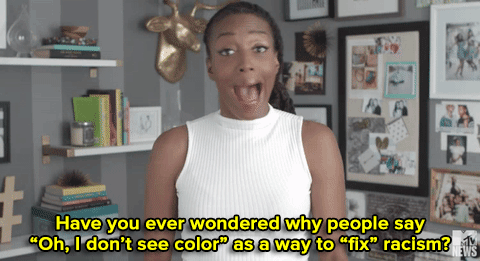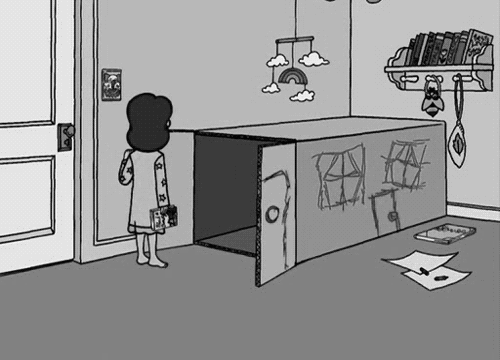From the archives on May 24, 2017
For as long as I can remember, I’ve always been racially colorblind. The topic of Civil Rights was never part of family discussions. If anything, we talked about how we were going to arm ourselves with knowledge and then use it to live the American Dream. As a precaution, I wore race blinders to minimize my involvement in any racially charged issues taking place around me in Corporate America.
During my young adolescent years, my Jamaican mother used to say, “Don’t blame the color of your skin for the things you do not have.” The “things” she was referring to were education, success, and a thriving career.
Earning a degree in journalism allowed me to work in local television newsrooms, write for financial publications and it even gave me a peek into the advertising world. All of this was possible because I pursued an education, which led to a successful career in media.
My race blinders kept me laser-focused. They kept me safe from any ethnic uprising in the workplace. They kept me in check. But when I started to navigate my way through the labyrinth of Middle-class America I soon realized my race blinders was keeping me from the truth.
Climbing the corporate ladder as a woman, or as Sheryl Sandberg described it in her bestselling book Lean In, “the jungle gym,” has been quite a struggle. But as a Black woman working in corporate America, my journey has been even more challenging.
Ring the Alarm
At first, I didn’t notice any red flags. Early in my career an executive news producer, who was also a Black woman, opened my eyes and rang the alarm. “In the news business, you have to work twice as hard because you’re a woman. And you have to work five times harder because you’re a Black woman.”
Till this day, those words stick to my soul. I took that piece of advice and ran with it. In every position I held over the years, I made sure to arrive at the office early, stay late, dress sharp and go above and beyond what my employers asked me.
Putting in the Work
The red flags didn’t start to show up until I decided to transition from local news to financial journalism. For the 10 years I covered finance, I had to prove myself every day. To start, I made it my duty to read everything I could get my hands on:
- Accounting
- Analysts Reports
- Annuities
- Divestitures
- Earnings Calls
- Fiduciary Rule
- Financial Advisors
- Initial Public Offerings (IPOs)
- Investment Bankers
- Life Insurance
- Mergers & Acquisitions
- Private Equity
- SEC Filings
- Venture Capital
- Wealth Management
… and the list goes on.
I’d watch my editors take White junior reporters under their wing to train them for success. I thought I would be next in line for one-on-one training, but my turn never came. While waiting in vain, I would concoct strategic plans to get in the good graces of my editors. Unfortunately, they were always too busy or didn’t have enough room in their nest.
The Only One
It’s no secret that White men dominate the financial world. It’s very rare that I saw anyone who looked like me at financial services industry events. The moment I stepped into a conference, I would count how many Blacks were in the room. Then I would count the Latinas, Asians and so on. I was usually the only minority.
As a matter of fact, it is the same landscape in the financial journalism world. Most of my colleagues are White men and women. They all hold degrees from pristine colleges, and they make sure to remind me anytime I want to give my insight on a story or a project. “Tamika, please know that I went to Columbia Journalism school for my masters. And I’m certified in social media, CMS, SEOs, and blah, blah, blah.”
They made me feel like my journalism degree from the University of South Carolina didn’t matter. Their put-downs and insults struck a nerve which caused me to work even harder.
Black Woman Left Behind
Those same White colleagues were on the fast track for promotion. Every time one of them got promoted I would get to the office earlier, stay later and read all of the financial publications cover to cover. “You’ve got to work twice as hard” kept ringing through my mind. It seemed that I was on a hamster wheel running toward a goal that I would never reach.
Then one day, a White colleague brought it to my attention the reason why I was getting passed over for promotion over and over again. “Do you think it’s because you’re Black?”
My co-worker pointed out that reporters on the fast track were White and Jewish, just like our boss. And every other week they were moving up in rank. “Race and religion shouldn’t have anything to do with why I’m not getting promoted,” I said to my co-worker. “My mother said not to blame the color of my skin for the things I don’t have. I just have to work harder for the things I want.”
I was beyond upset. But after I settled my emotions I realized that my co-worker had a point. I confronted that boss and explained how our team was perceiving him. He told me I just wasn’t ready. I pushed back and said I would not accept that as an answer. “If I see another promotion announcement and my name is not in the subject line, please know I’m putting in my two-week notice on that day.”
One month later, I received a promotion.
Replacement Blinders
After that experience I realized I had to remove the “race blinders” my mother gave me. It was clear to me that racism exists in Corporate America and it’s hard to prove. I ended up trading my “race blinders” for passive blinders.
Afraid to get fired, I ignored undercutting remarks from editors, reporters, and clients. Afraid to be labeled “the angry Black woman” I would keep my mouth shut when I heard “alternative facts” spewed about the Black community.
The one time I removed my passive blinders, my Black female co-worker pulled me aside and warned me that our boss doesn’t like it when we disagree with him or question him. “Wow, Masta got you under his thumb,” I thought to myself. “I will not bow down. I am a grown-ass woman, and I will continue to give my insight respectfully.”
And because I refused to obey the rules, “Masta” decided that it was time to make some changes. After only 10 weeks on the “Plantation,” the company said it was in financial despair. Guess whose position got cut for the New Year? I picked up my passive blinders, placed them back on my head and went back to square one.
If only I could just figure out how to remove the passive blinders and keep them off as I did with my race blinders. Working in Corporate America as a Black Woman has its perks said no one ever!



